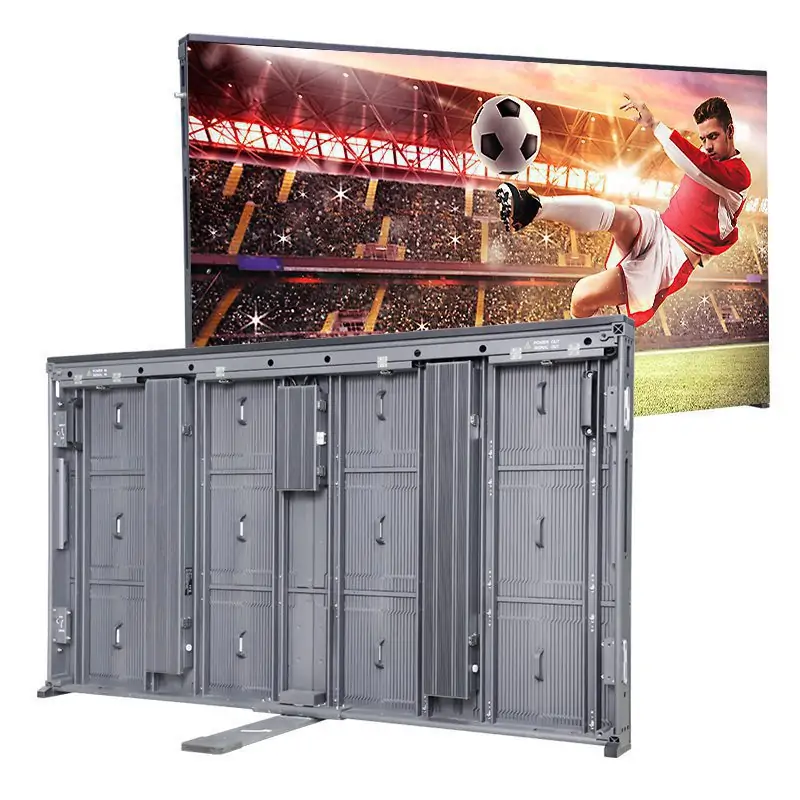Stadium LED Wall Recommendation
Stadium LED displays are high-definition digital screens that enhance fan engagement by showcasing live action, stats, and advertisements around sports venues, revolutionizing the spectator experience.
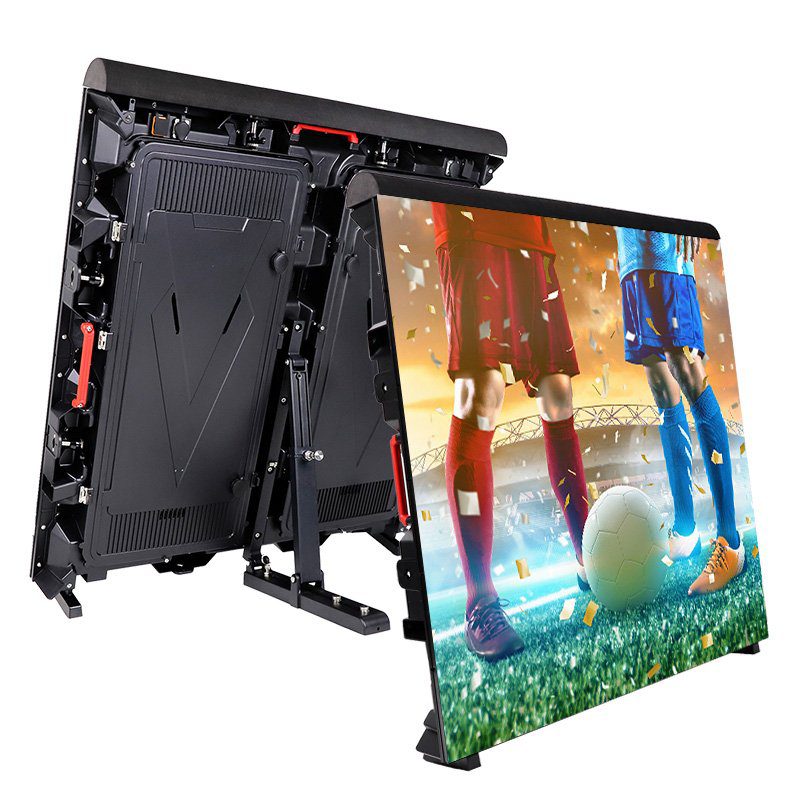
6000CD/㎡ Brightness, Precision-Engineered Cabinet
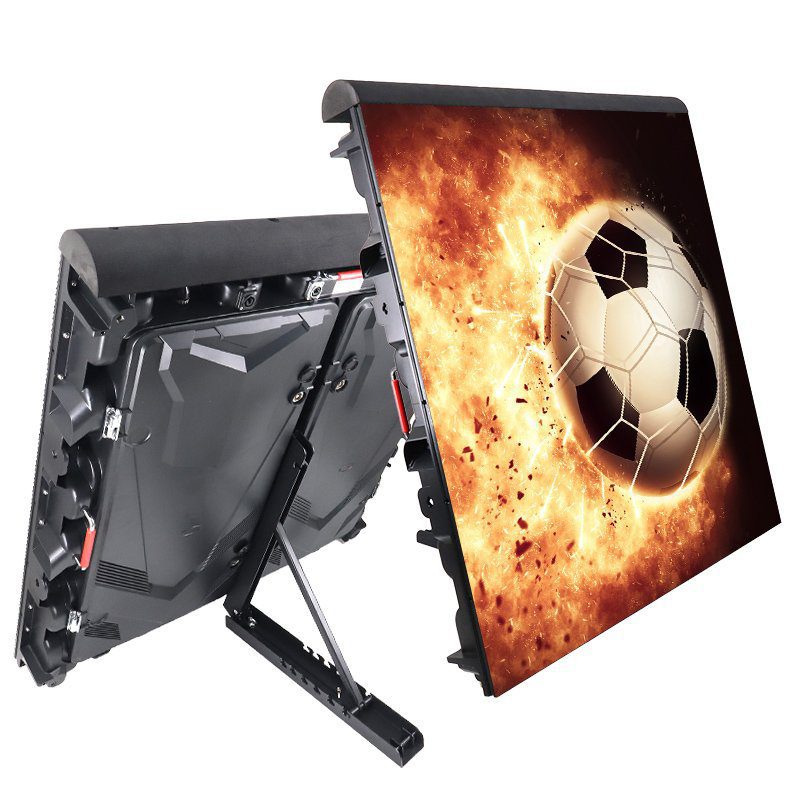
Accessible Maintenance, Quick-Lock System
EA1600SP Stadium LED Display Screen
Front and Rear Access, 90° Upright, Fixed Angle
The Best LED Display Solution for You
What Are the Key Applications of LED Displays in Sports Stadiums?
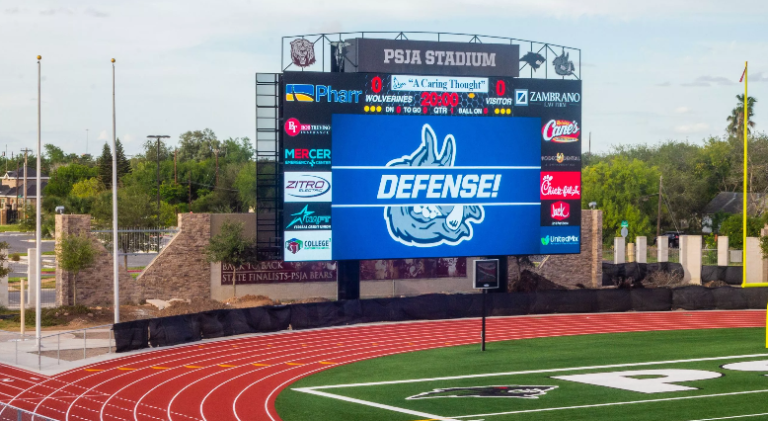
LED Scoreboard
Modern LED scoreboards have transformed from basic scorekeeping tools into dynamic entertainment centers, revolutionizing the fan experience at sports venues. These cutting-edge displays now deliver real-time replays, advanced player analytics, and interactive to audiences.
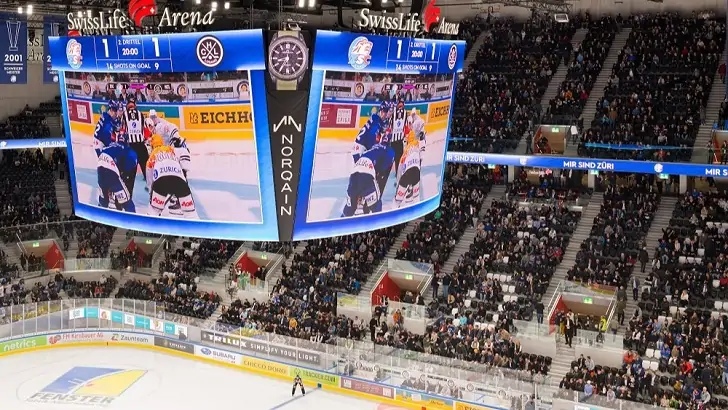
Cube LED Screens
Strategically positioned at the stadium’s center or key vantage points, these suspended LED displays deliver immersive 360° visibility. With motorized lift adjustment capabilities, they dynamically optimize viewing angles for flawless ad presentations, real-time score updates, and live game broadcasts.
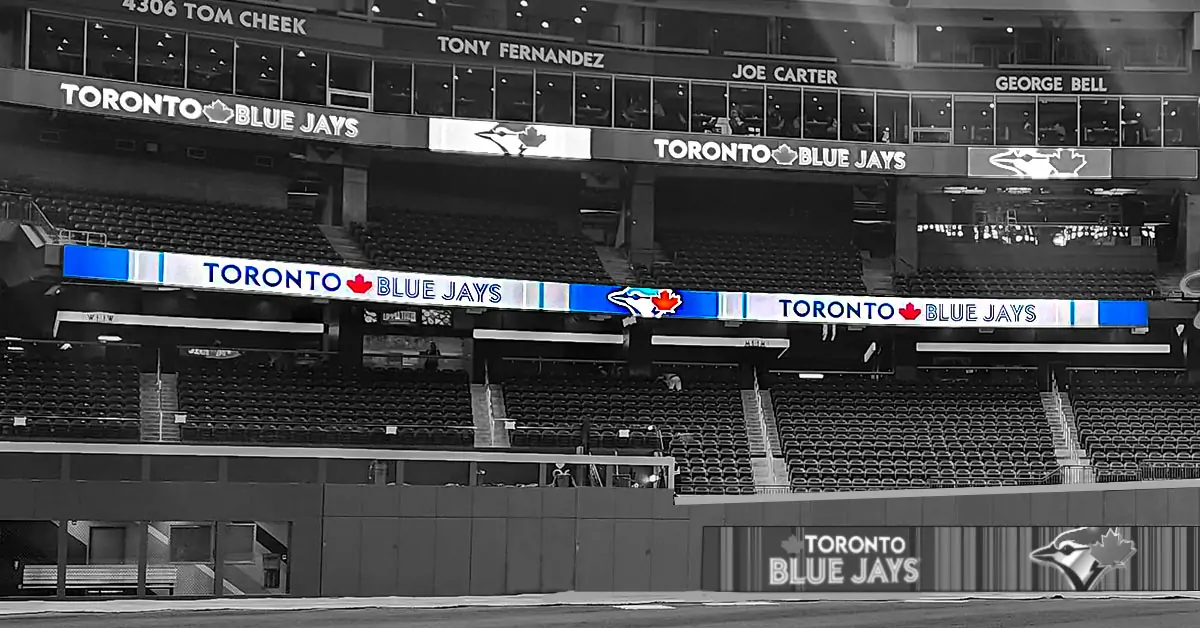
LED Ribbon Display
With their flexible design, ribbon LED displays can be curved or configured in a full 360° layout, blending effortlessly into the stadium’s architecture. These dynamic screens serve multiple functions—showcasing sponsor ads, running captivating animations, and promoting events.
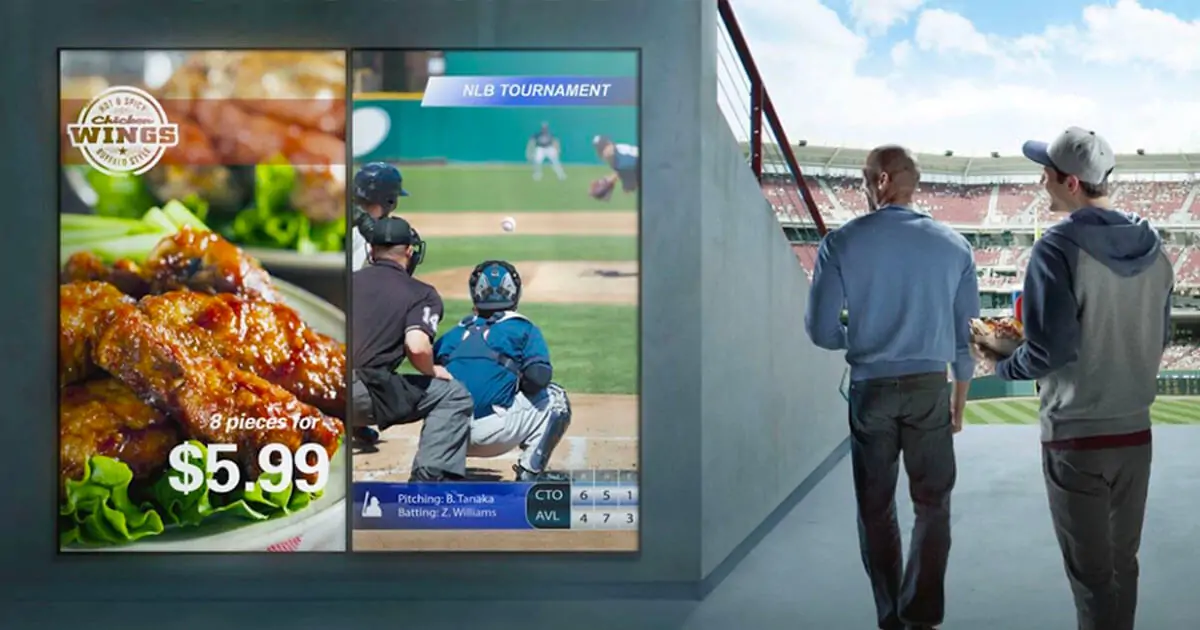
Concourse Screens
The lobby screens, positioned along the stadium’s walkways and gathering areas, play a vital role in enhancing the overall fan experience. These screens serve multiple purposes, including providing wayfinding assistance to help attendees navigate the venue, displaying menus and promotional offers to encourage food and beverage purchases.
The Best LED Street Billboard for You
Stadium LED Display Videos
- 3840Hz High Refresh & 6000CD/㎡ Brightness
- Durable, Adjustable Stand
- Enhanced Protection & Impact Resistance
- Precision-Engineered Cabinet
- Accessible Back Cover
- IP65+ Weatherproof Rating
- Seamless Integration
- Energy-Efficient LED Chips
- Screw-Free, Fully Sealed Cabinet
- Front and Rear Access
- Soft Mask Protection
- Hidden Support Brackets
EA1280SP1 Perimeter LED Display
- Stunning Visual Performance
- One-Piece Stand with Adjustable Angle
- Durable and Impact-Resistant Design
- Quick-Lock and Wire Management Design
- Openable Back Cover for Easy Maintenance
- IP65 or Higher Protection
Why Stadium LED Screens Are Essential for Modern Arenas
Step into any modern stadium, and you’ll quickly notice that the real magic isn’t just happening on the field — it’s also lighting up the screens all around you. Stadium LED screens have transformed the way fans experience live events, turning every seat into the best seat in the house. From jaw-dropping jumbotrons that capture every thrilling replay to vibrant concourse displays guiding fans to their favorite snacks and drinks, LED technology is the heartbeat of today’s arenas.
These screens do more than inform — they entertain, engage, and excite. They set the stage for unforgettable moments, boost fan interaction, and even open up powerful new revenue opportunities for stadiums through dynamic advertising and sponsorships. In short, without LED screens, modern arenas wouldn’t deliver the electrifying, immersive experiences fans have come to expect.
Table of Contents
- 1. 6 преимуществ светодиодных экранов на стадионах, меняющих игровой процесс
- 2. Трансформация опыта болельщика: от зрителя к участнику
- 3. Помимо спорта: необходимость многоцелевого объекта
- 4. Сколько стоит светодиодный экран для стадиона?
- 5. Будущие ожидания от светодиодных экранов для стадионов
- 6. Часто задаваемые вопросы о светодиодных экранах для стадионов
- 7. Заключение
1. 6 Gaming-Changing Advantages of Stadium LED Screens
Stadium LED screens give fans a front-row feeling, even from the back. Instant replays, close-ups, and real-time stats make every game thrilling. People can see every detail, celebrate together, and feel connected to the action—turning regular games into truly immersive experiences that keep them coming back for more.
1.1 Immersive Fan Experience
These babes are perfect for venues that require a stylish, high-definition look. Imagine crystal-clear visuals, colors that render the atmosphere, and love story videos that bring tears to everyone’s eyes (or at least slightly foggy). The indoor LED walls are easy to control and will not melt your champagne glass due to high temperatures.
1.2 Wayfinding and Crowd Management
Navigating a packed stadium can be stressful, but LED screens make it easier. Directional displays effectively guide fans to their seats, restrooms, and concession stands. By improving movement and reducing bottlenecks, stadiums create a safer, smoother experience. Fans spend less time getting lost and more time enjoying the event.
1.3 Real-Time Updates and Information
LED displays in the lobby help fans quickly grasp what’s happening. From schedule changes to safety alerts, they deliver instant information to keep everyone on track. This real-time communication reduces confusion, streamlines processes, and ensures fans never miss a crucial moment—whether it’s game highlights or emergency announcements.
1.4 Creating Atmosphere and Excitement
LED screens inject energy into the stadium. Pre-game hype videos, halftime shows, and interactive fan content energize the venue. Fans can see themselves on social media walls or participate in the action, fostering a vibrant, unforgettable atmosphere that elevates the overall entertainment value of every event.
1.5 Revenue Generation Opportunities
LED perimeter display aren’t just for show—they can help stadiums turn a profit. Dynamic advertising, sponsored content, and concession stand promotions boost sales and enhance return on investment. Their flexibility allows content to change instantly based on events, audience demographics, or time of day, maximizing fan engagement and revenue potential.
1.6 Multi-Purpose Flexibility
Modern stadiums host more than just sporting events. LED screens effortlessly adapt to concerts, esports tournaments, and special events. Rapid content switching allows venues to entertain diverse audiences without hardware replacement. This versatility ensures stadiums remain relevant and profitable year-round, regardless of event type.
So there you have it! Stadium LED displays aren’t just flashy technology—they enhance the fan experience, improve operations, generate revenue, and keep things vibrant. For modern arenas, they aren’t optional; they’re essential. Bottom line: if you want an amazing stadium, LED screens are a must-have.
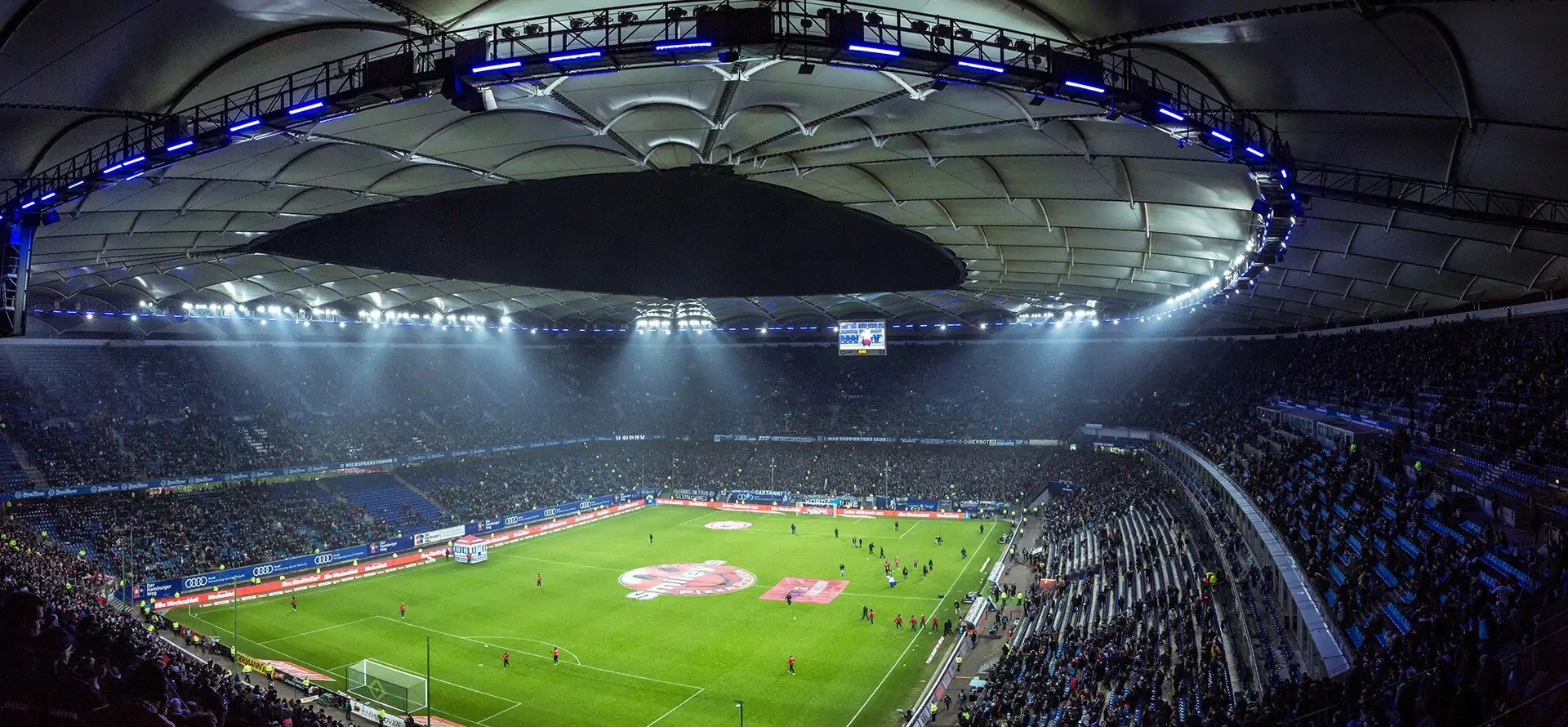
2. Transforming the Fan Experience: From Spectator to Participant
You know, watching a game used to be so simple—you’d grab a seat, cheer for your team, and if you were lucky, maybe catch the replay. But today? It’s a whole new world. Stadiums aren’t just about watching anymore; they’re about being part of the action. With LED screens everywhere, from massive jumbotrons to lobby displays, fans aren’t passive observers anymore. They’re right in the thick of the excitement, feeling like they’re part of the team.
Think about those instant replays on the giant stadium screens. Did you miss the goal or the touchdown from your seat? No worries. The screen catches it, shows it in slow motion, even zooms in on the players’ reactions. It’s like the game follows you wherever you are. It’s not just about seeing the action—it’s about feeling it. That energy, that connection, it’s electrifying. Fans start cheering louder, celebrating together, because everyone sees the same moment at the same time.
Then there are all the interactive activities happening outside the field. LED screens in the lobby and fan zones can host polls, trivia, or social media walls where your selfies appear in real time. You’re not just watching the game; you’re participating in it—and might even see yourself on the big screen. It makes the entire stadium experience feel personalized—as if the venue is responding to you, not just the players.
More importantly: this isn’t just fun for fans. Teams and arenas benefit too. When fans are fully engaged, they spend more time inside the venue, check out offers, buy merchandise, and get hooked on the next event. So by turning spectators into participants, arenas aren’t just entertaining—they’re creating unforgettable experiences that keep people coming back. It’s a win-win for everyone.
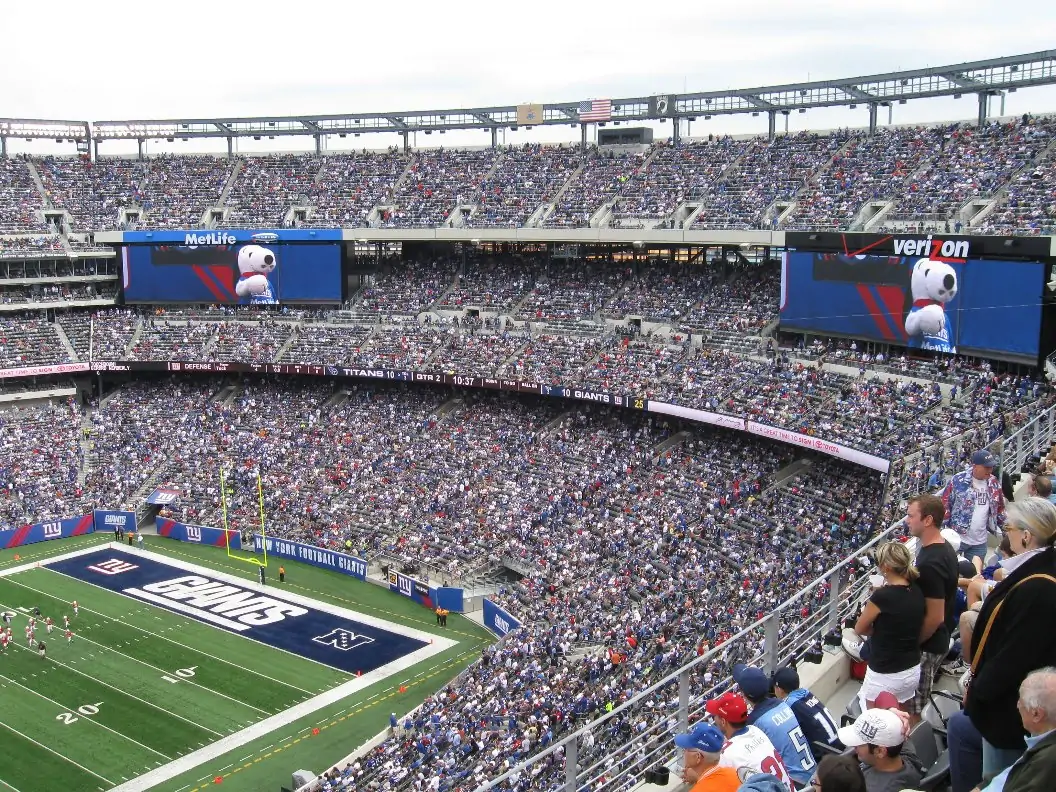
3. Beyond Sports: Multi-Purpose Venue Necessity
Frankly, today’s stadiums are no longer built solely for sports. They represent massive investments, and owners want them to stay busy year-round, not just on game days. This is where the concept of multi-purpose venues comes into play. To survive and thrive, modern arenas must transcend athletics and open their doors to a wide range of events.
3.1 Concerts and Live Entertainment
Think about concerts. When your favorite artists come to town, where do they perform? That’s right—usually in stadiums. LED screens allow tens of thousands to enjoy the show, even from the back rows. Grand visuals, live close-ups, dazzling graphics—it transforms a concert into a full-scale spectacle. Without this setup, the energy just wouldn’t be the same.
3.2 Esports and Digital Competitions
Now let’s talk about esports. Competitive gaming has exploded in popularity, drawing crowds as large as traditional sports. Imagine a massive LED wall displaying every detail of the game—players, statistics, even real-time chat feeds. Suddenly, the stadium transforms into a digital arena where fans aren’t just watching—they’re experiencing the action live.
3.3 Community and Corporate Events
This is more than just entertainment. The multipurpose stadium can host community gatherings, conferences, and even political rallies. Equipped with stadium LED screens for presentations, brand promotions, or live speeches, the space becomes flexible enough to accommodate virtually any occasion. This versatility keeps the venue profitable and relevant year-round.
So the bottom line is: a modern arena dedicated solely to sporting events is missing out. When stadiums can shift gears, that’s where the real value lies—one day hosting a football match, the next a concert, and the day after an esports showdown. What’s the secret ingredient making all this possible? LED screens. They transform stadiums from single-purpose venues into multifunctional powerhouses.
4. How Much Does the Stadium LED Display Cost?
So, you’re wondering about the price of stadium LED displays? Well, there’s no one-size-fits-all answer. Pricing can vary based on several factors, including the type of display, its size, resolution, and the specific requirements of the venue. Let’s break it down to give you a clearer picture.
4.1 Perimeter LED Displays
Perimeter LED displays are typically installed along the edges of sports fields or arenas. They serve multiple purposes, ranging from advertising to displaying scores and replays. The cost of these displays generally ranges from $400 to $1,000 per square meter. For example, a P10mm outdoor display might cost approximately $980 to $1,050 per square meter.
4.2 Center-Hung Video Walls
These are the large, often circular displays suspended above the center of the arena. They provide a 360-degree view of the action and are central to fan engagement. The cost for these can vary significantly based on size and resolution. For a 3×2 meter video wall, prices generally range from $12,000 to $18,000, while a larger 5×3 meter setup might cost between $20,000 and $30,000.
4.3 Small to Medium-Sized Displays
For smaller venues or specific applications, such as scoreboards or sponsor boards, the cost can be more budget-friendly. A small indoor screen measuring around 4 meters by 3 meters might cost between $8,000 and $20,000, depending on the specifications.
4.4 Rental Costs
If you’re looking to rent an LED display for a one-off event, rental prices can vary. For example, renting a 100-square-foot LED wall might cost between $5,000 and $7,000 for a single day.
Estimated Price Chart for Stadium LED Displays

In summary, the cost of a stadium LED screen can vary widely based on its type, size, and intended use. Whether you’re considering a perimeter display for advertising, a center-hung video wall for fan engagement, or a smaller screen for specific applications, it’s essential to assess your venue’s needs and budget accordingly. Always consult with a professional to get a tailored quote that fits your requirements.
5. Future Expectationsin Stadium LED Screens
When you think stadium perimeter LED displays are already impressive, just wait — the future is going to take things to a whole new level. Technology keeps moving fast, and arenas are racing to upgrade. So what can we expect from stadium LED screens in the years ahead? Let’s break it down.
5.1 Immersive Experiences with AR/VR
Get ready for an immersive experience. Picture this: you’re watching the game through your phone or AR glasses, with the LED perimeter board connected to your device. Real-time stats pop up, instant replays sync seamlessly, and you can even vote on fan polls displayed live on the big board. It’s no longer just a screen—it’s an interactive gateway.
5.2 Higher Resolution and HDR
Right now, the LED perimeter display looks great, but imagine each pixel being sharper, colors brighter, and highlights more vivid. With 8K and HDR technology, fans will feel like the action is happening right before their eyes, even from the farthest seats. No more squinting, no more guessing—just pure clarity.
5.3 Smarter, Greener Technology
Another critical issue is sustainability. Future LED perimeter boards will consume less power while delivering greater brightness. Energy-efficient designs and smart systems will save stadiums money and reduce their carbon footprint. Fans get the wow factor, venues gain long-term savings—a win for everyone involved.
5.4 Flexible and Creative Displays
Expect more creativity. LED panel can bend, wrap around walls, and even move. Stadiums won’t just have one big screen; they’ll install dynamic displays throughout the venue, turning every corner into part of the show. It’s about transforming the entire stadium into a living, breathing experience.
So, what does the future hold for LED screens in sports stadiums? They’ll be brighter, smarter, more immersive, and more sustainable. These displays won’t just show the game. They’ll completely transform how fans experience it. Bottom line: The best is yet to come.
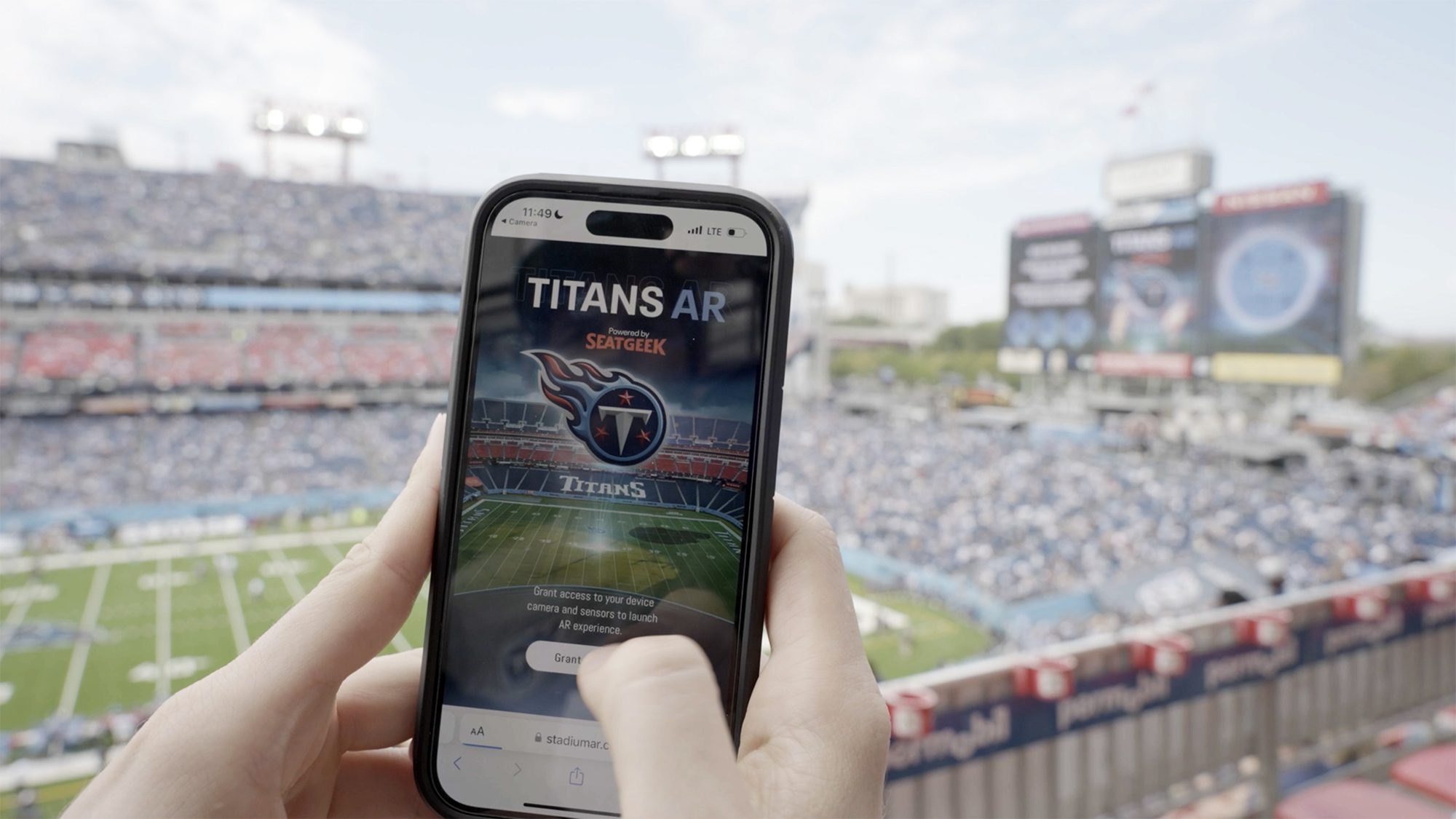
6. FAQs of Stadium LED Displays
7. Conclusion
Stadium LED screens have become a cornerstone of modern arenas, transforming how fans watch, interact with, and enjoy events. From creating immersive game-day experiences to supporting concerts, esports, and community events, these displays extend far beyond sports. They guide crowds, enhance safety, generate revenue, and offer limitless possibilities for engagement. As future innovations deliver sharper visuals, greener technologies, and interactive features, LED screens are not merely an upgrade—they are an essential investment for any arena seeking to remain relevant, profitable, and unforgettable.


